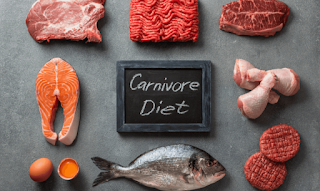What to eat?
A Healthy Diet
Michael Pollan discovered, for good health, we need to eat food, mostly plants and not too much.
The 'mostly plants' part is debatable but eating wholesome, natural foods, prepared simply, is spot on.
Much of what is eaten today is highly processed and not usually in a good way. The western way of eating has led to obesity, bad skin and teeth, and chronic disease. The food industry has done a great job of getting most of us hooked on poor quality foods. Liberal use of sugar (in all its forms), salt and unhealthy fats (i.e. seed oils) has been a boon to this industry as well as the disease and diet industries. Sadly, too many folks don't understand that those who run these industries don't care about people or good health. They don't care if you get sick (in fact it is desirable) and they don't care if you die. Simple as that. You are responsible for you, period. So with all the misinformation out there (even many dietitians get things wrong), what do you do?
- Regular (high fat) ground beef and lamb is economical and a great choice.
- Eat the non-muscle parts of the animals (offal is not awful). Pasture raised and grass fed.
- If dairy is not a problem then consume and go for HIGH fat options. Minimally processed is better and raw is best.
- Eggs are wonderful! Try to get pasture-raised.
- Fish. Wild and fatty is best. Most farmed fish are unhealthy...consume with caution.
- Eat lots and lots of healthy fats. You read that right! There is no upper limit to the amount of saturated fat you can consume. Go for it. Limit yourself only if calories are a concern (if you're trying to lose weight or keep it off). Saturated fat is the healthiest fat we can consume. We evolved eating it and it does not harm us. Examples of healthy fats:
- Saturated - animal fats, butter, ghee, palm oil, cocoa butter, coconut fat.
- mono-unsaturated - olive oil, avocado oil.
- It is very important that the fats and oils are minimally processed and fresh. Virgin, cold-pressed oils that are stored properly. Saturated fats are best for cooking. If you eat nuts and seeds you will get plenty of the other oils in a much better form for consumption. Palm oil should be virgin and unrefined from areas that aren't destroying orangutan habitat.
- It is best to get omega-3 fats from seafood or fish oils (like good old cod liver oil).
- Be heavy handed with fats when cooking especially if eating lots of carbs.
- Vegetables contain anti-nutrients that must be dealt with. If the anti-nutrients are minimal then eat those that allow you to thrive. Try to keep the carbs to a minimum unless you need the energy boost.
- Fruits (sweet and savoury) of all kinds are meant to be eaten (the nightshade family are tasty but debatable. If you have never had problems then eat them). Heirloom or wild is best, or organic.
- Berries - wild is best, or organic.
- Bone broths.
- Fermented anything. (Note: Pickled is not the same...go easy.)
- Resistant starches are good. (Look it up.)
- Sea vegetables (see vegetables above).
- Insects and their larva (debatable).
- Supplements should be avoided. Get what you need from food (like organ meats).
Although grains, legumes, nuts, and seeds are staples the world over we do not need them in our diet. Many people have one problem or another with their consumption. To make the nutrients they offer bio-available and the foodstuffs digestible, they must be properly prepared. Soaking, sprouting or fermenting these foods is vital. The sources should be heirloom or organic. If you have no issues with these foods and they are properly sourced and prepared, then go for it.
SUGAR - gah! The scourge of modern society (likewise, unhealthy fats). A little sugar here or there is not a problem but we consume waaayyyy too much. Use minimally refined natural sweeteners like honey, tree or rice syrups. Do not consume fructose except from what you get from eating a piece of whole fruit. Fructose is as damaging to the liver as alcohol! Thus, no high fructose corn syrups or agave syrups. No Coke! No Pepsi!
Steer clear of all artificial sweeteners.
Keep the consumption of sugar and processed foods to a minimum!
Keep the consumption of sugar and processed foods to a minimum!
Keep the consumption of sugar and processed foods to a minimum!
The above links are very good places to start if you want know the real score.
Lastly, when it comes to diet you need calories...lots if you are very active. Those calories should come from healthy fats (approx 65%), protein (approx 20%) and carbs (approx 15%). Tweak the protein and carb amounts depending on what activities you are engaging in, i.e. building muscle - up the protein, lower the carbs; running a marathon - up the carbs, lower the protein. Everything minimally processed.
Cheers!




Comments
Post a Comment